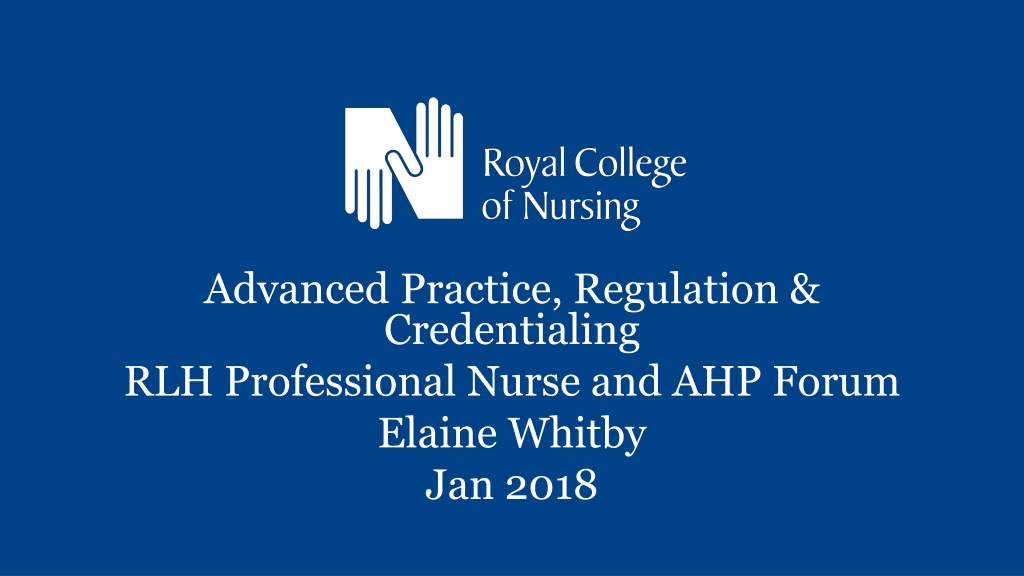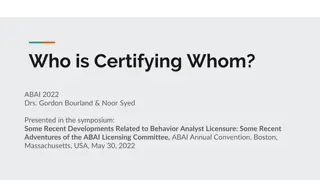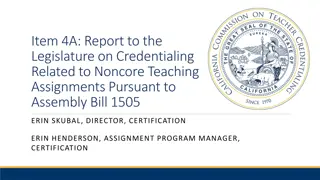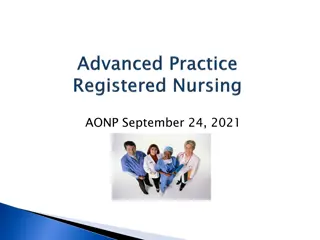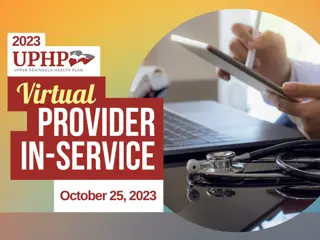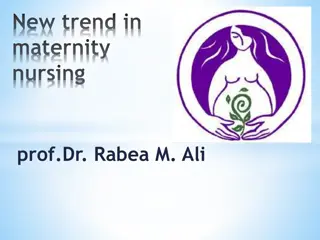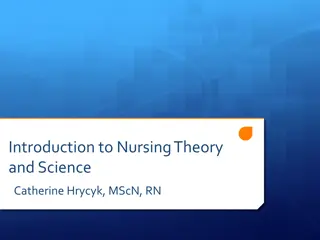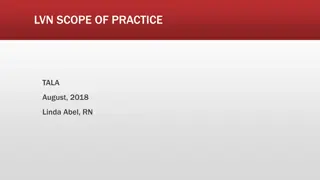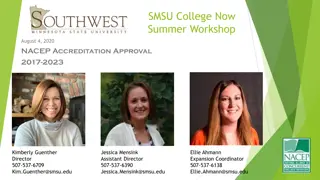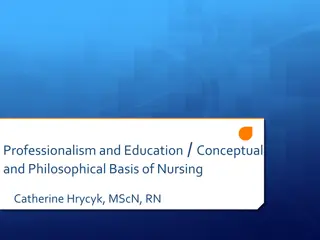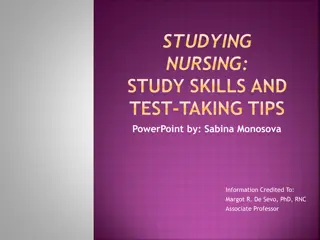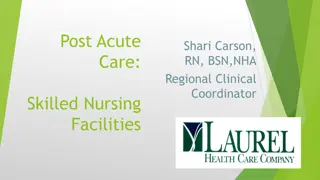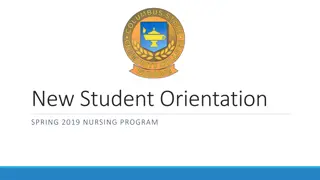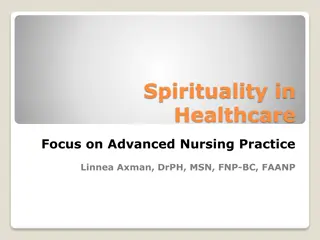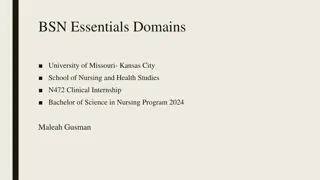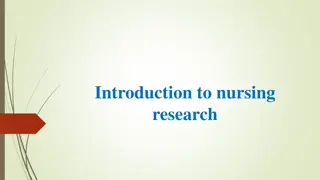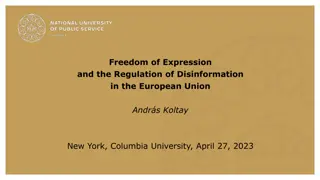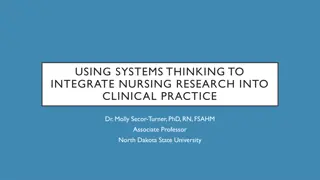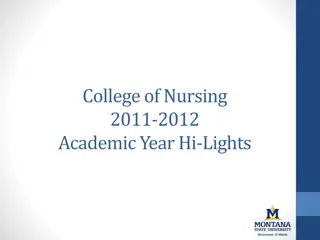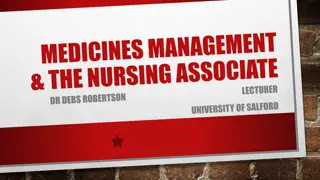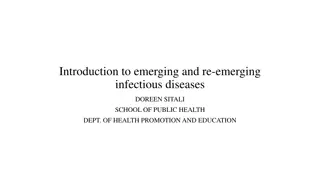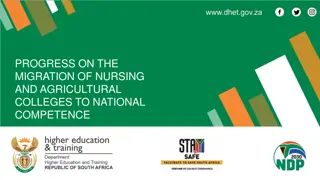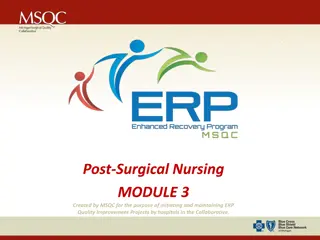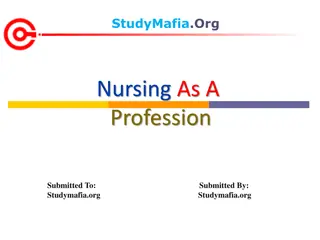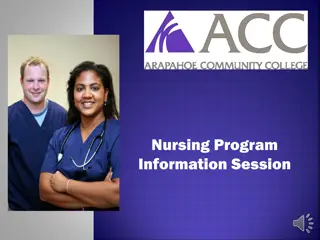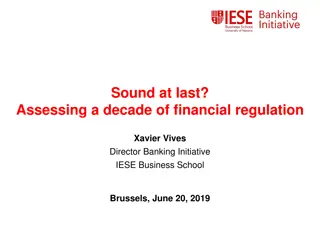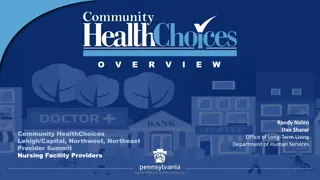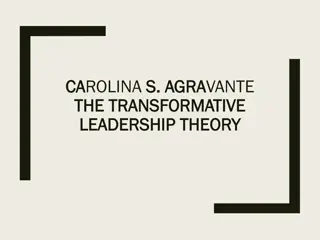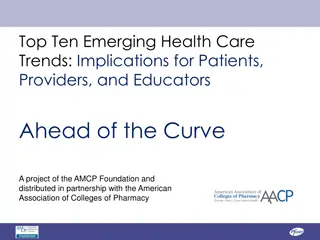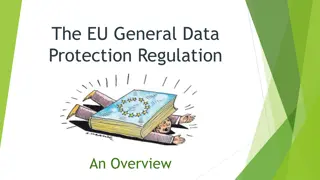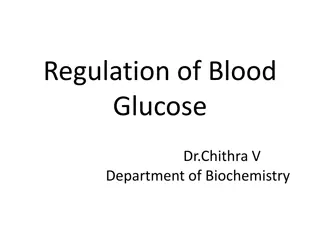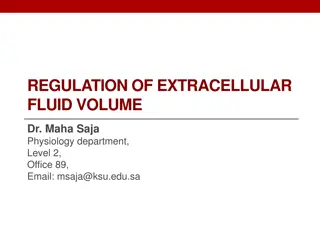Emerging Trends in Regulation and Credentialing for Advanced Practice Nursing
Explore the evolving landscape of regulation and credentialing in advanced practice nursing, including inconsistencies in titles, the debate between regulation and credentialing, and the challenges and purposes of regulation. Discover the impact on roles, education, and patient safety in this rapidly changing field.
Download Presentation

Please find below an Image/Link to download the presentation.
The content on the website is provided AS IS for your information and personal use only. It may not be sold, licensed, or shared on other websites without obtaining consent from the author. Download presentation by click this link. If you encounter any issues during the download, it is possible that the publisher has removed the file from their server.
E N D
Presentation Transcript
Advanced Practice, Regulation & Credentialing RLH Professional Nurse and AHP Forum Elaine Whitby Jan 2018
Any burning questions/issues? What (if anything) have you heard that you want to check out? Are there any specific, current issues you want to explore with your peers?
Topics Context setting: Roles & titles Regulation Advanced Practice developments RCN Advanced Level Nursing Practice Credentialing
Whats in a name? Inconsistencies in the use of the term advanced practice and a wide range of roles carry the title nurse specialist , specialist nurse , clinical nurse specialist , nurse practitioner and advanced nurse practitioner (Alison Leary: 600 titles) No agreement or protection of title for clinical nurse specialists or advanced nurse practitioners - adding to the plethora of titles and roles Inconsistencies in the scope of practice and education and training provision, with potential impact on career progression & patient safety Lack of national regulatory framework and standards Plethora of new, similar level clinical disciplines/roles: nurse/clinician/practitioner?
Emerging roles, regulation & credentialing Regulation v Credentialing v Voluntary Registers Why credentialing why not regulation? Definitions Strengths & limitations Rapidly changing agenda
Regulation Purpose: public protection Decision to regulate is governmental decision: only considered where there is a compelling case and where other mechanisms e.g., voluntary registers, are not considered sufficient to manage risk NMC to regulate nursing associates Requested by Secretary of state; requires change in legislation multiple consultations Standards; Code; fitness to practice; revalidation etc. Challenges: practitioner/professional Consultation on regulation of medical associate professions: physician associate (PA) physicians assistant (anaesthesia) (PA(A)) surgical care practitioner (SCP) advanced critical care practitioner (ACCP) Pre-requisite for some roles = registerable clinical qualification
Regulation (2) DH consultation on regulation of healthcare professionals: 32 professions 9 regulators NMC & HCPC largest regulators (692,550 & 341,745 registrants) Models of regulation Number of regulators
Credentialing Credentialing: Standardisation of the level & range of competence Royal College of Emergency Medicine: credentialing framework for Advanced Critical Practitioners in the emergency care setting (nurses, paramedics). Commenced 2016 Other medical royal colleges exploring: RCAnaethetists GMC interest Advocated for cosmetic practice Miscellaneous Voluntary registers, networks, accreditation
Multi-professional framework for advanced clinical practice in England Framework Definition: Advanced Clinical Practice is delivered by experienced registered healthcare practitioners. It is a level of practice characterised by a high level of autonomy and complex decision-making. This is underpinned by a masters level award or equivalent that encompasses the four pillars of clinical practice, management and leadership, education and research, with demonstration of core and area specific clinical competence. Advanced Clinical Practice embodies the ability to manage complete clinical care in partnership with patients/carers. It includes the analysis and synthesis of complex problems across a range of settings, enabling innovative solutions to enhance patient experience and improve outcomes. Advanced Clinical Practitioners Steering Group framework implementation
RCN Advanced Level Nursing Practice Credentialing
What is ALNP Credentialing? Credentialing is the process of assessing the background and legitimacy of nurses to practice at an advanced level through assessing their: qualifications, experience, and competence. It promotes practice that is in accordance with the four pillars of advanced practice
Why is the RCN doing this? Profession build upon the reputation of the nursing profession as a continuously improving and high quality service Nurse - formal recognition of advanced level of practice and creation of advanced career pathway Public - confidence and assurance in the continuing development, capability and professionalism of their nurses Employer - assurance of the advanced level of practice of nursing staff Drive up standards of practice and skills of nursing profession
Builds on existing work The work builds on, and strengthens, thinking in each of the four home countries. We have reviewed: NHS Wales Advanced Practice Framework (2010), NHS Scotland Advanced Nurse Practice Toolkit (2011), Department of Health Advanced Level Practice : A Position Statement (2010), Northern Ireland Supporting Advanced Practice in Health and Social Care (2014).
RCN definition of Advanced Practice As a body concerned with the developing profession we define Advanced Practice as: Advanced practice is a level of practice, rather than a type of practice. Advanced Nurse Practitioners are educated at Masters Level in advanced practice and have been assessed as competent in practice using their expert knowledge and skills. They have the freedom and authority to act, making autonomous decisions in the assessment, diagnosis and treatment of patients.
Work to date APCAG advisory group convened with key external and four country representation Task & finish group explored models, approaches and practices Designed transitional arrangements for non- Masters advanced level nurses Test cohort launched Nov 2016 to Jan 2017 and Early Adopters in May 2017 Full Launch in May 2017 Organisational use
Criteria for the credential Registered with the NMC Relevant Masters degree. Prescribing rights. Experience and competence mapped against the 4 pillars of advanced practice. Work plan and clinical reference. Evidence of CPD over previous 3 years.
Transitional arrangements Until December 2020 nurses who don t meet the above criteria can apply. There are a series of models against which experience, competence & education can be mapped. These will be assessed on an individual basis.
Assessment Every applicant s submission will be assessed by an external assessor selected by the RCN against strict criteria. There will be a moderation process undertaken by a different group of assessors
Credential renewal The initial credential is for 3 years. There is a fee for the credential 275.00 After this time renewal is required; there is a fee for renewal - 125.00
Final slide Any remaining comments, questions?
Thankyou elaine.whitby@rcn.org.uk
